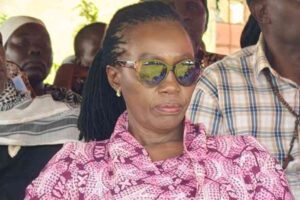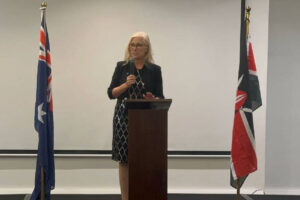
Around the world, global trends and Western affiliations sometimes overshadow local traditions. However, in Nigeria, there has been an intentional revival of traditions and cultural awakening across the different ethnic groups. For instance, festivals like Ojude Oba are now gaining interest and attracting the young generations. In this cultural awakening, women are playing a leading role.
Bọ́láńlé Yusuf, a digital storyteller, uses social media to bring Yoruba folktales, proverbs, and oral histories back to life. Raised on Lagos Island by her grandmother, Yusuf grew up immersed in the richness of Yoruba heritage, such as stories, chants and wisdom words. But as she got older, she noticed that the language and traditions that once filled her childhood were beginning to disappear.
“I noticed that many young people around me, especially in urban places like Lagos, were slowly losing touch with our Yoruba roots,” she said. At a community event she attended, children were asked to say something, anything, in Yoruba, and most of them couldn’t. Some laughed and said, “I don’t understand Yoruba like that.”
“That moment hit me deeply,” Yusuf said. “Watching [Yoruba] slowly fade from daily life didn’t sit right with me. So, I decided to take action.”
She began posting short videos online, retelling folktales, explaining proverbs, blending Yoruba with pop culture references, and showing how deeply language is tied to identity. What began as creative content soon became cultural preservation. “I took Yoruba culture online to reach more people, especially young people, and help keep it alive in today’s digital world.”
Nigeria, a country with more than 500 languages, is well-known for its linguistic diversity. However, many indigenous Nigerian languages are endangered, squeezed out by English, migration, and the pressures of globalisation. According to UNESCO, “At least 40% of the 7,000 languages estimated to be spoken in the world are endangered, and on average, a language disappears every two weeks, taking away the cultural and intellectual heritage of communities.” As revealed in a study, UNESCO reported in “Atlas of the World’s Languages in Danger, that a substantial portion of Nigeria’s languages are at risk, with 115 classified as endangered.”
Yoruba might be one of the most widely spoken languages, but it remains under threat, particularly among young urban Nigerians.
Yusuf’s work is part of a larger digital movement aimed at cultural preservation, a movement significantly influenced by women. Traditionally, this area has been dominated by Yoruba scholars and men in established roles. However, young women are now at the forefront, not only preserving their culture but also reimagining it for a new generation.
Adéjọké̩ Ẹwàèdè, a Yoruba princess, is also using her platform to promote the language. For her, promoting culture is a form of resistance and reclamation. “The first step towards emancipation is self-discovery and identification,” she said. “I try to live the culture, citing my life as an example. It’s a dream that must be fulfilled no matter what.”
These women rely on everyday tools like TikTok, Instagram, podcasts, fashion and voiceovers for their mission. Yusuf, for example, retells folktales in modern slang, dresses in traditional attire, and collaborates with other Yoruba creatives. The goal, she says, is to make culture feel “close, fun, and alive.”
The work isn’t always easy. Recognition is low, and some still view indigenous culture as outdated, or worse, irrelevant. But the emotional rewards are profound. Yusuf recalled one young girl who was brought to her by her parents, who “didn’t want to learn the language or engage with her heritage.” Over time, the girl’s perspective changed. She began to embrace the language, the stories, and the sense of identity.
“That transformation reminded me why I do this,” Yusuf said. “Language is the soul of culture. If we lose the Yoruba language, we lose more than just words; we lose our wisdom, our values, our dignity.”
Looking ahead, Yusuf dreams of building a platform dedicated to Yoruba storytelling like Bọ́láńlé Oní Story Night Tales, where the oral tradition lives on digitally. “I don’t just see myself as a content creator; I see myself as a cultural ambassador for my generation.”
In today’s digital age, where identities and heritage can easily become blurred or forgotten, Bọ́láńlé and Adéjọké̩ are using their platforms for preservation. They speak not only for themselves but also for generations past and future. Through their efforts, they remind us that preserving culture is not a passive act; it requires active and intentional participation. They remind us that this work is becoming increasingly important for everyone, including women.





